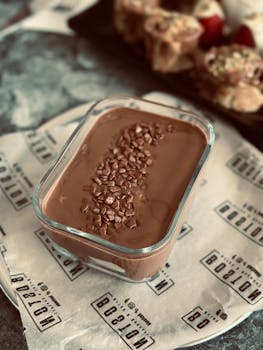Have you ever caught your cat eyeing your bag of kettle chips, especially the salt and pepper flavor? As a cat parent, it’s natural to wonder if a small nibble of your favorite snack is safe for your feline friend. While sharing human treats with pets might seem harmless, certain foods, especially those with seasonings, can pose serious risks to your cat’s health.
😺 Why Cats Are Drawn to Salty Foods
Cats are curious creatures, and their interest in human food often stems from the enticing smell or crunch. Salt and pepper kettle chips, with their strong aroma and crispy texture, can easily grab your cat’s attention. However, cats have unique dietary needs that differ significantly from ours, and their digestive systems aren’t built to handle many human foods.
Unlike us, cats lack the ability to taste sweetness and are more drawn to savory flavors. While this might explain their interest in salty snacks, it doesn’t mean these foods are safe or healthy for them. In fact, the ingredients in salt and pepper kettle chips can be harmful, even in small amounts.
🍟 What’s in Kettle Chips? Ingredients That Can Harm Cats
To understand why kettle chips are risky for cats, let’s break down their main ingredients and why they can be problematic:
- Salt: Excessive salt intake can lead to sodium poisoning in cats. Symptoms include vomiting, diarrhea, lethargy, and even seizures in severe cases.
- Black pepper: While not toxic, black pepper can irritate your cat’s stomach and cause discomfort.
- Oil and fats: Fried chips are high in unhealthy fats, which can contribute to obesity and pancreatitis in cats.
- Seasonings: Many chips contain onion or garlic powder, which are toxic to cats and can damage their red blood cells.
- Preservatives: Artificial additives and preservatives in processed snacks can upset your cat’s digestive system.
Even if a single chip might not seem harmful, the cumulative effects of these ingredients can take a toll on your cat’s health over time.
⚠️ Symptoms to Watch for If Your Cat Eats Kettle Chips
If your cat manages to snag a piece of salt and pepper kettle chip, it’s essential to monitor them closely for any signs of distress. Symptoms of food-related toxicity or digestive upset can include:
- Vomiting or regurgitation
- Diarrhea or loose stools
- Lethargy or unusual tiredness
- Excessive thirst or urination (a sign of salt poisoning)
- Loss of appetite
- Abdominal pain or discomfort
- Seizures (in severe cases of sodium poisoning)
If your cat shows any of these symptoms after eating kettle chips, contact your veterinarian immediately for advice. Prompt action can prevent serious complications.
🐾 Why Cats Should Avoid Seasoned Foods
Cats have delicate digestive systems that aren’t designed to process heavily seasoned or processed foods. Unlike humans, they don’t crave variety in their diet and thrive on simple, nutrient-rich meals. Feeding your cat foods with added salt, spices, or seasonings can lead to long-term health issues, including:
- Kidney problems from high salt intake
- Obesity due to excessive fat consumption
- Gastrointestinal upset from artificial additives
- Anemia caused by onion or garlic toxicity
It’s always better to stick to cat-safe treats and foods specifically formulated for their dietary needs. Your cat doesn’t need the extra flavoring to enjoy a snack!
🛑 What to Do If Your Cat Eats Kettle Chips
If your cat sneaks a bite of a kettle chip, don’t panic. A single chip is unlikely to cause severe harm, but it’s still important to take precautions:
- Remove any remaining chips to prevent further consumption.
- Offer fresh water to help flush out excess salt.
- Monitor your cat for symptoms of digestive upset or salt poisoning.
- Contact your veterinarian if you notice unusual behavior or symptoms.
In most cases, a small amount of kettle chip won’t require emergency care, but it’s always better to err on the side of caution. Your vet can provide personalized advice based on your cat’s size, age, and health history.
🍽️ Healthier Snack Alternatives for Cats
Instead of sharing your chips, consider offering your cat safe and healthy treats designed for their needs. Here are some great options:
- Cooked, unseasoned chicken or fish
- Catnip or cat grass
- Commercial cat treats with high protein content
- Small amounts of plain cooked egg
- Freeze-dried meat treats
These alternatives are not only safer but also provide essential nutrients that support your cat’s overall health.
FAQs
Can cats eat plain kettle chips without seasoning?
Even plain kettle chips are not ideal for cats due to their high salt and fat content. It’s best to avoid feeding them to your cat altogether.
What should I do if my cat eats a lot of chips?
Contact your veterinarian immediately. Large quantities of chips can cause salt poisoning or digestive distress, which may require medical attention.
Are other human snacks safe for cats?
Most human snacks are not suitable for cats due to added salt, sugar, and preservatives. Stick to cat-specific treats or unseasoned, natural foods like cooked chicken.
Can I give my cat pepper as a spice?
No, black pepper can irritate your cat’s stomach and is not recommended as part of their diet.
References
Book a $49 online vet consultation at https://www.dialavet.com for fast, expert advice.























